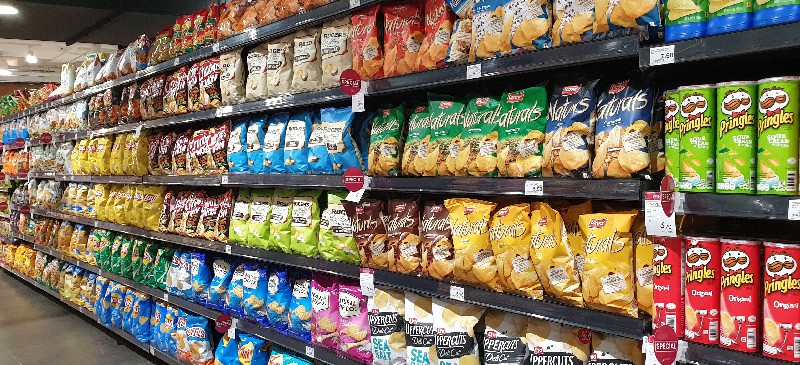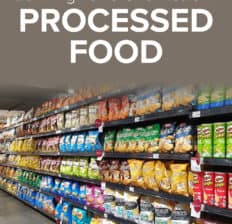This Dr. Axe content is medically reviewed or fact checked to ensure factually accurate information.
With strict editorial sourcing guidelines, we only link to academic research institutions, reputable media sites and, when research is available, medically peer-reviewed studies. Note that the numbers in parentheses (1, 2, etc.) are clickable links to these studies.
The information in our articles is NOT intended to replace a one-on-one relationship with a qualified health care professional and is not intended as medical advice.
This article is based on scientific evidence, written by experts and fact checked by our trained editorial staff. Note that the numbers in parentheses (1, 2, etc.) are clickable links to medically peer-reviewed studies.
Our team includes licensed nutritionists and dietitians, certified health education specialists, as well as certified strength and conditioning specialists, personal trainers and corrective exercise specialists. Our team aims to be not only thorough with its research, but also objective and unbiased.
The information in our articles is NOT intended to replace a one-on-one relationship with a qualified health care professional and is not intended as medical advice.
California Advances 1st U.S. Ban on Toxic Chemicals in Processed Food
May 17, 2023

In April 2023, the California Assembly’s Committee on Health officially approved a bill that would ban five harmful chemicals from processed foods, and it was approved by the California Assembly in May 2023. As relayed by the Environmental Working Group (EWG) — a co-sponsor of the bill along with Assemblymember Jesse Gabriel and Consumer Reports — if the bill becomes law, “California would be the first state to impose such a prohibition.”
This is a big deal because we know processed foods and ultra-processed foods can cause a slew of health issues, including potentially increasing the risk of weight gain, heart disease, diabetes, depression, cancer and more.
5 Chemicals on CA Ban List
This legislation, A.B. 418, would ban the use of the following chemicals in cereals, candy and other processed foods:
- brominated vegetable oil
- potassium bromate
- propyl paraben
- Red Dye No. 3
- titanium dioxide
This is a big deal because these chemicals have been linked to many harmful effects. Let’s a take a quick look at each.
1. Brominated Vegetable Oil
According to research published in Food Chemistry, “Brominated vegetable oil (BVO; CAS 8016-94-2) is a food additive used in certain fruit-flavored beverages as a density stabilizer for citrus oil emulsions. BVO, prepared by reaction of liquid bromine with unsaturated vegetable oils, presents a relatively high density (ca. 1.3 g/cm3).” It’s especially common in soda.
This is problematic because consuming BVO has a long of history of causing issues in animal studies. For instance, a 1983 study fed adult Sprague-Dawley rats diets containing BVO at different amounts for two weeks before mating. The rats were fed the same diets through gestation and lactation for the female rats, and the offspring were also fed the BVO diets.
Here’s what researchers found:
- When BOV was 2% of the diet, it completely blocked reproduction.
- At 1%, it “severely impaired conception, lowered maternal weight and lowered litter size. In addition, “postnatal mortality was high, and survivors showed impaired growth and severe behavioral impairments on a battery of standardized tests of functional development.”
- At 0.5%, there were severe behavioral impairments, and “this group exhibited severely reduced postweaning activity, delayed vaginal patency development, and reduced day-90 weight.”
Since, animal research has found other issues with BVO consumption, including potential thyroid toxicity, impaired heart lipid metabolism, myopathy inhibition and more.
2. Potassium Bromate
It’s jarring that potassium bromate is used in food considering that the International Agency for Research on Cancer describes it in the following ways:
Potassium bromate is highly toxic. It produces lipid peroxidation and oxidative DNA damage in rat kidney; there is also evidence that it increases the concentration of α2u-globulin in male rat kidneys. The available data, including evidence of genetic toxicity, suggest, however, that potassium bromate causes renal tumours through a mechanism that involves oxidative damage to DNA.
…
A number of case reports of acute poisoning by potassium bromate have been reported. Potassium bromate is highly toxic. It produces lipid peroxidation and oxidative DNA damage in rat kidney. There is also evidence that it increases the amount of α2u-globulin in male rat kidney. The available data, including evidence of genetic toxicity, indicate, however, that potassium bromate causes renal tumours through a mechanism involving oxidative damage.
This food additive has also been associated with several other health complications in animal research, such as ” disturbance in blood biochemistry, renal and hepatic histopathology and decreased antioxidant capacity,” which led researchers to conclude that “these dangerous effects should stop its use in human being.”
Often used in bread-making, potassium bromate also has negative effects on bakers. A study conducted on bakers in Cameroon revealed the following: “All bakers have experienced symptoms of potassium bromate toxicity, and painful eyes, cough, diarrhea, and sore throat were the most recurrent symptoms of toxicity. ”
3. Propyl Paraben
Found in a surprising number of foods, propyl parabens have been linked to several negative effects in animal research. For instance, a 2002 study administered three-week-old male rats with propyl paraben in different doses, and after four weeks, researchers found that daily sperm production significantly decreased, while testosterone concentrations also dropped.
Further research on mice found it also negatively affects female reproduction.
This chemical has been found to be an endocrine disruptor as well.
4. Red Dye No. 3
According to EWG, Red Dye No. 3 has been shown to:
- cause tumors in rats and be an animal carcinogen
- potentially lead to “adverse neurobehavioral outcomes in children”
- possible cause thyroid issues in rodents
That’s not all. Food dyes like Red Dye No. 3 have been linked to ADHD, estrogenic and DNA-damaging effects, toxicity and more in both human and animal models.
5. Titanium Dioxide
According to EWG, titanium dioxide:
- is possibly carcinogenic to humans
- may cause fibrosis of the heart at high doses as shown in animals
- could damage DNA
- affects reproduction in animals
- could potentially damage the liver and kidneys in high doses as shown in animals
In addition, although more human evidence is needed to determine the risks of the mineral, potential titanium dioxide side effects from excessive exposure (especially when inhaled) may include:
- Respiratory issues
- Skin irritation
- Reproductive and developmental effects
- Inflammation
- Cancer
Banning these chemicals is a good first step to help the U.S. catch up the Europe, where these substances are already barred from use in food, with minor exceptions.
“It’s unacceptable that the U.S. is so far behind the rest of the world when it comes to banning these dangerous additives. We don’t love our children any less than they do in Europe, and it’s not too much to ask food and beverage manufacturers to switch to the safer alternative ingredients that they already use in Europe and so many other nations around the globe,” said Gabriel.
“What are these toxic chemicals doing in our food?” added Susan Little, EWG’s senior advocate for California government affairs.
“We know they are harmful and that children are likely being exposed at a much higher rate than adults. It makes no sense that the same products food manufacturers sell in California are sold in the EU but without these toxic chemicals,” Little said.
“Our kids need to be protected, too,” she added. “These harmful additives have no place in California’s food supply.”












